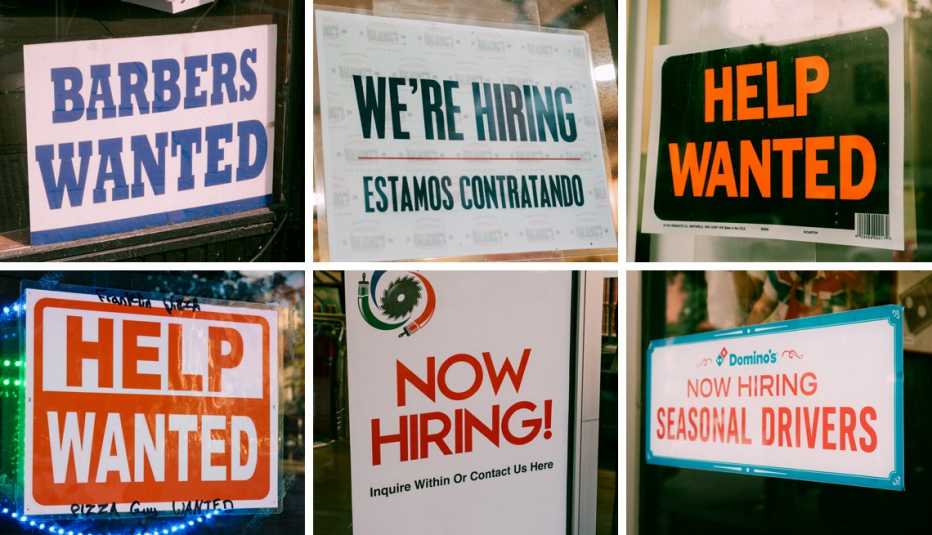AARP Hearing Center
Monica Parker needed a change. She turned 50 during the pandemic and had a comfortable job on the leadership team of a nonprofit. It wasn’t that she didn’t like the job, but there was a nagging feeling that it was time for something different. And, in the labor market of the early 2020s, there is plenty of opportunity for workers to pick and choose what they want to do. “I'm a lawyer by trade, but more recently worked for an education nonprofit as its associate executive director. After turning 50, I decided to move into the diversity and inclusion space,” she recalls.
Parker calls herself “something of a career change expert” and has reinvented her career before. And she’s not the only one who feels the need for something new. A 2021 Bankrate study found that 55 percent of adults are looking to change jobs within the next 12 months, and a recent survey from Resume Builder found that 40 percent of workers age 54 and older have considered switching jobs because of the new opportunities available. The U.S. Bureau of Labor Statistics reported that roughly 4.2 million people voluntarily left their jobs in October, a decline from the previous month but still continuing a string of exceptionally high quit rates that have been dubbed “the Great Resignation.”
Fewer workers, more opportunity
Where are all of these workers going? While some older adults have been pushed out of the labor force because of ageism, others are using the pandemic-fueled need for workers as an opportunity to find a new job or switch careers. Some are starting businesses, according to an analysis by the Economic Innovation Group that found that 2021 would be a record-breaking year for new business filings. As AARP has previously reported, roughly half of boomers think it’s a good time to look for a new job.
“We’ve certainly seen an increase in people of all ages wanting to find a new job or switch careers entirely. This includes workers aged 55-plus,” says career expert Amanda Augustine with TopResume, a career and résumé-writing consultancy that works with AARP on its Resume Advisor service. “In addition, we’ve seen a growing number of mature workers not only leaving their jobs in search of new opportunities, but also interested in finding more flexible roles or opting out of the workforce altogether for retirement.”
Joe Mullings, chairman and CEO of search firm the Mullings Group, says that older workers may have a number of advantages that allow them to find new opportunities. They may have accumulated assets that give them the financial stability to devote time and resources to a new career path. They may also have the deep experience and transferrable skills that take time to develop. “Get an inventory of what you’re really good at,” he says. “Experience — what you have seen — is not anything that can be accelerated along the way.”
Shifting gears
If you’re thinking of making a change while the labor market is tight, there are a few things to think about first, Mullings says. First, analyze the reasons you want to make a change. Do you truly want a new job or career shift — or do you simply need a break? Changing your livelihood is a serious decision that shouldn’t be taken lightly, he says.
“I always ask people [certain questions] before they make this big career switch,” Mullings says. “I want to find out if you’re unhappy in your relationship, and you’re unhappy in your job, and you’re unhappy in your social life. You know what those three things have in common? You. So, you need to examine that before you start making radical shifts in life.”































































